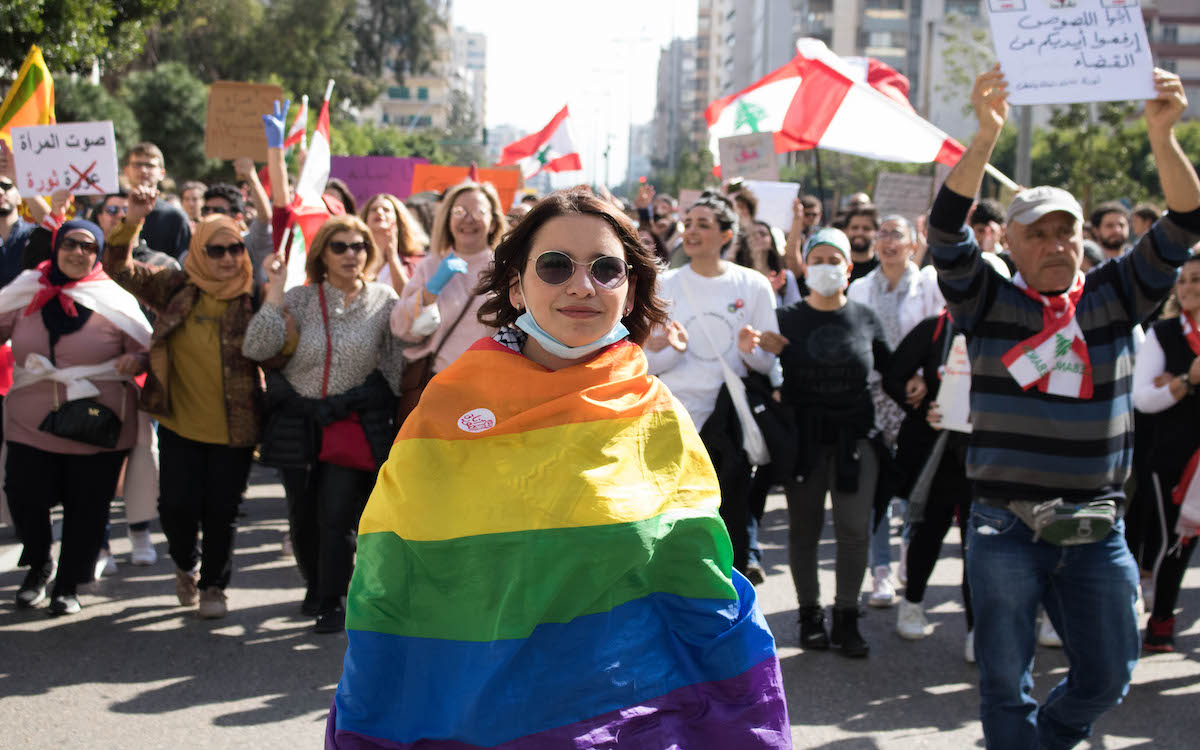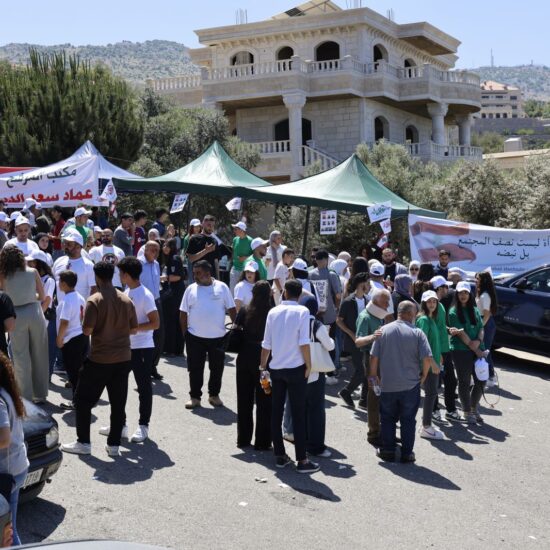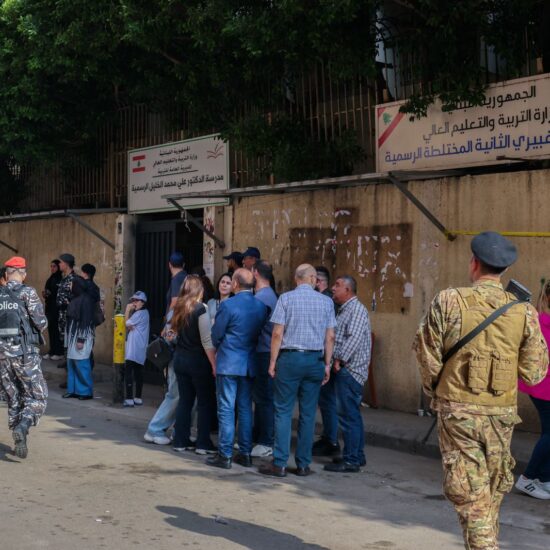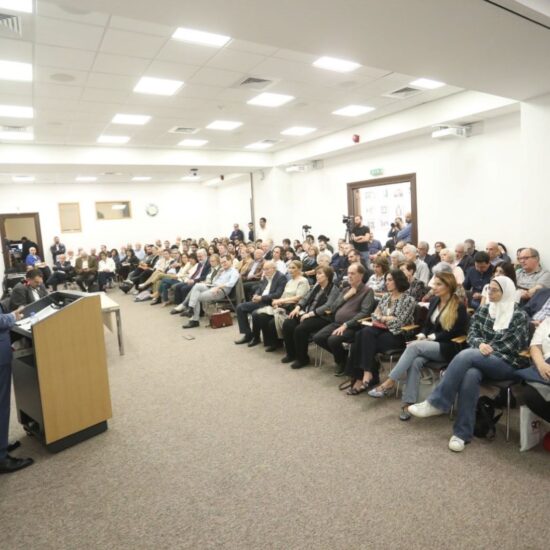
Pride month has begun.
This year, the worldwide celebrations organized in the month of June, primarily in the West, pay homage to the June 1969 New York City Stonewall uprising, when city police raided the Stonewall Inn, a gay club located in Greenwich Village, New York City.
The riots that ensued served as a catalyst for the modern equal rights movement.
But in Lebanon, where homosexuality is still criminalized under Article 534, and members of LGBTQ+ communities still struggle with discrimination and social stigma, celebration is not the right word for Pride month.
The tide seems to be turning, however, as political allies from different factions and parties join the fight to abolish article 534 alongside human rights defenders and queer rights NGOs. From their end, opposition MPs, Paula Yaacoubian and Ibrahim Mneimneh both spoke publicly about the necessity of decriminalizing homosexuality right before the elections. Mneimneh even received heavy backlash for his stance; critics accused him of jumping on the bandwagon to appeal to the young voters of his district, Beirut II.
Christian parties Kataeb and the Free Patriotic Movement have also been allies in interviews with equal rights NGO Proud Lebanon. Kataeb politicians have expressed their support for the abrogation of Article 534 in 2018.
“We know our limits and we know society is not ready for anything beyond simply decriminalizing homosexuality but we have to choose our fights,” Bertho Makso, Executive Director of Proud Lebanon told NOW. “So we’re currently working with multiple MPs to present a draft law to parliament very soon, in which article 534 is completely abolished.”
Article 534 criminalizes LGBTQ+ people, especially intercourse between men and the gender expression of trans people. It also allows for arbitrary detentions, confiscation and search of phones, government crackdowns, in addition to nonconsensual HIV tests, and abusive anal examinations, to prove whether a person has engaged in homosexual acts.
Discrete activism
Lebanon maintains a reputation as the most tolerant of Arab countries regarding queer rights. But there is no parade in Beirut and the community faces discrimination, marginalization and human rights abuses.
In 2017, activists who organized Lebanon’s first-ever Pride parade on May 17, the International Day against Homophobia, Transphobia, and Biphobia (IDAHOTB), ended up in jail. A government crackdown followed in 2018, and increased religious threats led to canceling all events in 2019.
Organizers of Beirut Pride were forced to cancel the event’s opening concert after receiving threats from religious authorities that jeopardized the safety of the attendees.
According to Makso, these religious groups threatened participants with the possibility of tracking them down and potentially causing them harm. Makso said that the organizers offered them a chance to sit down and have a discussion to find a resolution, which they totally rebuked.
Then, the economic crisis hit Lebanon and the COVID-19 pandemic added to the ordeal with its long lockdowns increasing mental health risks. Whatever safe spaces the community had created before 2019 closed down due to the financial crisis or were destroyed following the August 4 port explosion, which damaged much of Beirut’s central neighborhoods, such as Gemmayze and Mar Mikhael.
“The community suffered a lot in the last few years,” Sarah, a 28-year-old DJ told NOW. “We are also faced with more restrictions than the West so we can’t really celebrate pride month the proper way. We still have a lot of work to do.”
From his end, Makso says that the celebrations of IDAHOTB held a bigger significance for the Lebanese queer community than the US-originated Pride month.
“Because we had to face a lot of hate and discrimination when organizing events for pride week in past years, May 17 was marked with a lot of importance,” Makso said.
Slow change in applying the law
Activist Sandra Melhem told NOW that Lebanon’s entire constitution, in general, disfavors all individuals that are not straight Lebanese men. In fact, personal status laws, such as marriage, inheritance, and child custody rely on 15 separate personal religious-based status laws and courts.
These patriarchal legal structures largely discriminate against women for instance. So for Melhem, if the government was incapable of affording basic equality between men and women, it is no surprise that such a government would neglect issues of equality and human rights, including equal rights for LGBTQ+ individuals.
“Our whole constitution is outdated and needs to be changed. However, it’s important to note that Lebanon’s politicians share very close ties with religious authorities that have perpetuated negative stereotypes about the community,” the activist said.
The penal code was first introduced to Lebanon by the French protectorate after the First World War. The Napoleonic code used by the French authorities and adopted by Lebanon in 1943 prohibits “unnatural sexual intercourse”. However, Melhem contends that the provision is vague and could signify bestiality instead of homosexuality. It technically leaves it to the interpretation of the judge.
Some judges, however, have started to go against a history of rulings. In January 2016, in a ruling at the Court of Appeals in Beirut, Judge Janet Hanna confirmed the right of a transgender man to change his official papers, granting him access to necessary treatment and, importantly, privacy.
In July 2018, the Penal Appeal Court of Mount Lebanon upheld a lower court ruling which acquitted nine people prosecuted for homosexuality. The lower court held that homosexuality was “a practice of their fundamental rights”.
In March 2019, Judge Peter Germanos cleared a group of four Lebanese soldiers of charges of committing sexual acts “contrary to nature” and declined to issue warrants for their arrest.
Melhem says that the law’s longevity is only due to the government’s need to maintain a tool to discriminate against queer individuals.
“I’ve recently learned that those previously persecuted under article 534 did not find their names on the voters’ lists and were, therefore, denied their rights to vote,” Melhem said.
Although the activist points out that due to global and local activism around gay rights and the rising popularity of queer events in Beirut in particular, the legislation is slowly falling out of use.
“Of course it is still a concern to all of us. However, some members are more targeted than others. Queer refugees and transgenders, for instance, have a much harder time when detained and can be charged for prostitution or drug possession before being prosecuted with article 534,” Melhem said.
Political promises
Makso and Melhem agreed that confrontations do not work in Lebanon. Instead, lobbying and activism led to better results, as more MPs joined the initiative.
Makso says that Proud, in collaboration with other NGOs and civil society movements, is currently working to collect the necessary number of signatures in the Parliament to demand the end of Article 534.
“In order to make sure this law passes, we need the biggest number of legislators on our side so that our opponents don’t end up winning,” he said.
Although he says he is unable to disclose names of MPs or political parties who have already expressed support, he says that there are many members of the establishment as well as opposition on board.
The bill, according to Makso, has been in the works since 2018. However, the hope was reborn after the 2019 uprising gave birth to new progressive groups that increased the number of political allies.
“Now is our chance,” Makso said. “We’re working to have MPs from different factions and religious backgrounds so that the backlash is not exclusive to one group.”
All parties involved understand the gravity of such a decision and are prepared for the outcome, he pointed out.
“Nothing can prepare you for what’s to come but we all know this is part of the fight,” he said.
Proud has already set off to collect signatures from MPs, and Makso says that the coalition behind this law has planned all the legislative details needed for its approval except for its implementation date.
NOW reached out to several MPs and other NGOs for a comment on the bill, but none responded.
“If this works out, we’d be making history and paving the way for more progress !” Makso said.
Dana Hourany is a multimedia journalist with @NOW_leb. She is on Instagram @danahourany and Twitter @danahourany.








